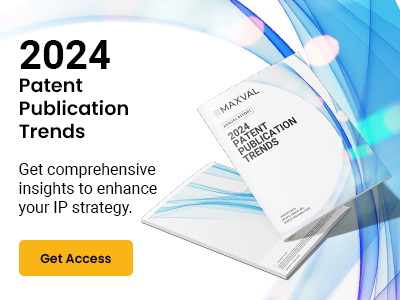The rapid progress of generative artificial intelligence (AI) has resulted in remarkable advancements, showcasing its capacity to generate original and innovative content. However, this technological breakthrough has raised many questions and concerns for intellectual property (IP) attorneys. As AI-generated works become more prevalent, questions around copyright, trademarks, and patents have emerged.
Here are some of the top issues associated with AI-generated IP:
- Inventorship for Patents: AI systems demonstrate an increasing ability to generate inventive ideas and innovations independently. A significant milestone occurred in July 2021 when the South African Patent Office granted a patent titled “Food container based on fractal geometry.” This case was noteworthy because the inventor listed was not a human but an AI system known as “DABUS” (Device for the Autonomous Bootstrapping of Unified Sentience). This groundbreaking event marked the first official recognition of an AI system as an inventor, raising complex legal and ethical considerations.
While not all patent offices allow AI tools to be listed as inventors, Australia has taken a broader view, considering non-human entities as inventors, provided they fulfill certain criteria (see point 120).
- Ownership and Authorship: Determining ownership and authorship of AI-generated IP assets can be complex. Traditional IP laws typically attribute authorship to human creators. In light of the emergence of AI-generated content, it becomes crucial to address the question of authorship and ownership to prevent potential issues regarding legal rights, licensing, and royalties.
The issue of authorship remains unresolved, especially with generative AI producing original works. The methodology behind generative AI involves machine learning models trained on massive datasets, enabling them to generate text, images, and music. Determining infringement becomes complex, depending on dataset sources and licensing terms. Legal disputes and court cases will shape the future of IP law and the recognition of AI-generated works.
- Trademarks and Brand Protection: Trademarks play a crucial role in enabling businesses to differentiate their products or services from competitors. However, as AI-generated content proliferates, there is a heightened risk of inadvertently infringing upon existing trademarks or diluting their distinctiveness. Monitoring and safeguarding trademarks becomes increasingly challenging due to AI’s ability to generate vast content swiftly.
- Originality and Non-Obviousness: Intellectual property protection, such as copyright and patent rights, generally requires the works or inventions to meet the criteria of originality and non-obviousness. With AI-generated content or inventions, there is a need to assess whether the output produced by AI systems is genuinely original and non-obvious or if it merely replicates existing works or knowledge.
- Data Ownership and Privacy: AI systems rely heavily on vast volumes of existing data for training and generating outputs. For instance, the use of AI, specifically the Generative Adversarial Network (GAN) algorithm, is creating highly sophisticated AI systems that can autonomously generate new and improved creations. The role of intellectual property (IP) in this scenario is being debated, particularly regarding inventorship, authorship, and ownership of AI-generated works. Current IP laws do not accommodate AI machines as inventors or authors, leading to challenges in obtaining patents and copyright protection. The need to revise laws to address AI-generated works is being discussed, and organizations like the US Patent and Trademark Office are seeking stakeholder input on the matter.
- Fair Use and Infringement: AI systems can inadvertently generate works that may infringe upon copyrighted materials. It becomes challenging to determine whether AI-generated pieces fall under fair use or if they violate copyright laws, blurring the lines of what constitutes infringement and raising questions about liability and responsibility.
Legal actions have been initiated due to the unapproved utilization of copyrighted materials in AI training datasets. The judicial system is currently wrestling with matters concerning fair usage, ownership, and the creation of derivative works. To minimize potential risks, AI developers must adhere to licensing and compensation regulations, and businesses should insist on proper licensing of AI training data while incorporating protective measures in contracts. Content creators should be proactive in safeguarding their intellectual property, and brands should remain vigilant in detecting any derivative works.
- International Harmonization of IP Laws: The challenges associated with AI-generated IP assets extend beyond national borders. International harmonization of IP laws becomes essential to ensure consistent and coherent legal frameworks that address the unique aspects of AI-generated works. This requires collaboration and coordination among different jurisdictions.
- Enforcement and Protection: Protecting AI-generated IP assets poses challenges in enforcement and identifying infringement. Conventional methods of IP enforcement may need to be adapted to account for the unique nature of AI-generated works, including identifying the sources of infringement and establishing liability.
- Ethical Considerations: AI-generated IP assets raise ethical concerns, such as bias, transparency, accountability, and the potential for misuse. Addressing these concerns is crucial to maintain public trust, ensure fairness, and prevent unintended consequences.
Mastering the AI Maze: Empowering IP Attorneys to Conquer Generative AI Challenges
As AI systems become increasingly capable of generating innovative works, IP attorneys must understand the legal landscape surrounding these generative AI technologies. Here’s what attorneys can do:
- Get Familiar with AI Technology: To effectively navigate generative AI challenges, IP attorneys must develop a solid understanding of the underlying technology. Familiarizing themselves with generative AI algorithms, such as deep learning, neural networks, and natural language processing, can be the first crucial step. They can also stay updated on advancements and emerging trends to better advise clients on IP matters related to generative AI.
- Collaborate with AI Experts: IP attorneys should develop collaborations with experts in AI and data science fields to enhance their understanding of generative AI technology. By working alongside AI experts, they can better assess the legal implications of AI-generated content and devise appropriate strategies for protecting and managing IP rights.
- Assess Copyright Ownership and Authorship: Determining copyright ownership in AI-generated works can be perplexing. IP attorneys should acquaint themselves with the legal frameworks in their jurisdiction and analyze how they address authorship and ownership of AI-generated content. Staying informed about court rulings and legislative developments that shape the interpretation of copyright law in relation to AI-generated works is crucial.
- Review Patentability Criteria: AI-generated inventions may raise questions about patentability. IP attorneys must stay informed about how patent offices adapt to the rise of AI and their criteria for granting patents on AI-generated inventions. They should analyze the inventive step requirement and the role of human intervention in the inventive process. Additionally, staying abreast of emerging legal precedents and guidelines.
- Stay Updated on Legal Developments: Generative AI technology and its legal implications are evolving rapidly. Attorneys should continuously monitor legal developments, court rulings, AI and IP rights regulatory changes. For instance, the European Union (EU) is working on the AI Act, aiming to regulate artificial intelligence technology. Once implemented, companies utilizing generative AI tools will be required to disclose copyrighted material used in their systems. AI tools will be classified based on risk levels, and high-risk tools will have to operate with high transparency. The EU’s approach is seen as tactful and balanced, promoting innovation while protecting citizens’ rights.
Some entities are also talking about self-regulation along with government support. OpenAI CEO Sam Altman, for instance, testified before the Senate Judiciary Committee, urging lawmakers to regulate AI to avoid significant harm. Altman emphasized the need for collaboration and establishing parameters for AI creators. Other AI experts also supported governance at federal and global levels, proposing oversight agencies and safety standards.
- Monitor Ethical Considerations: AI systems may generate content that raises ethical concerns. Attorneys must stay informed about ethical guidelines and principles regarding AI, such as transparency, fairness, and accountability. They should advise clients on adopting responsible AI practices to mitigate ethical risks and maintain public trust.
The Last Word: Illuminating Insights and Concluding Reflections
As generative AI becomes more prevalent, IP attorneys play a vital role in helping clients navigate the associated challenges. By staying informed about the technology, monitoring ethical implications, collaborating with AI experts, and staying updated on legal developments, attorneys can effectively navigate the generative-AI landscape and provide valuable guidance to clients seeking to protect and manage their IP rights in this rapidly evolving field.




